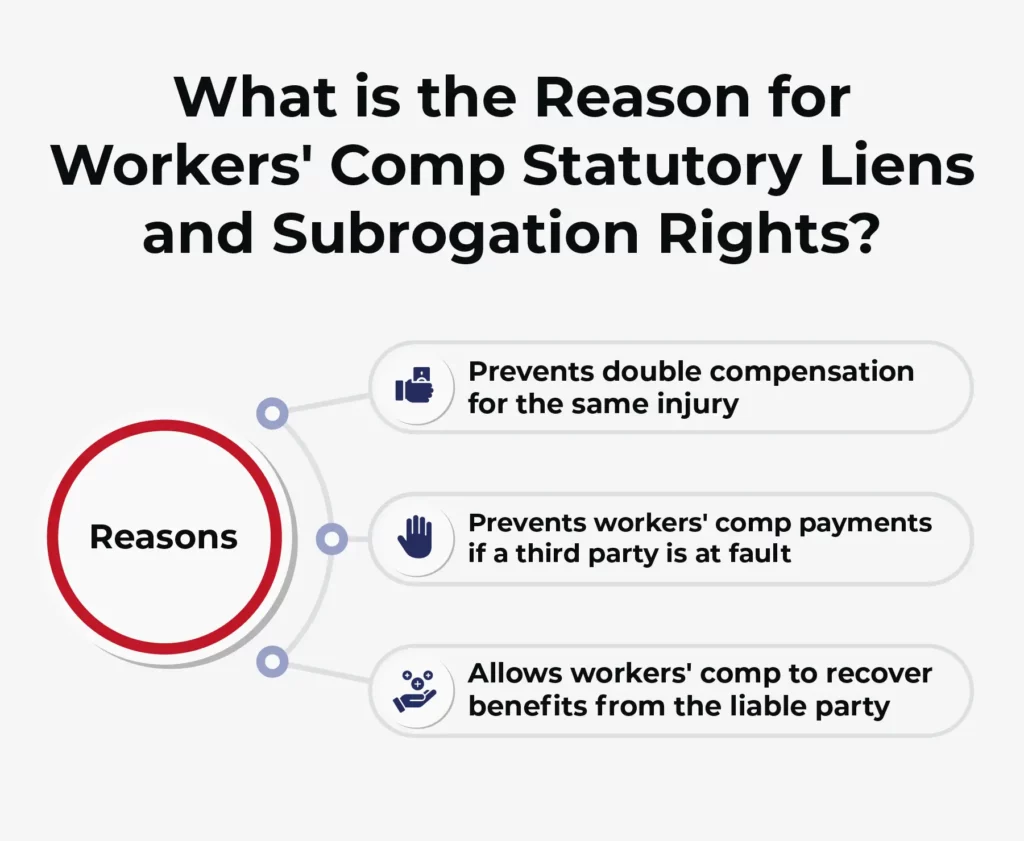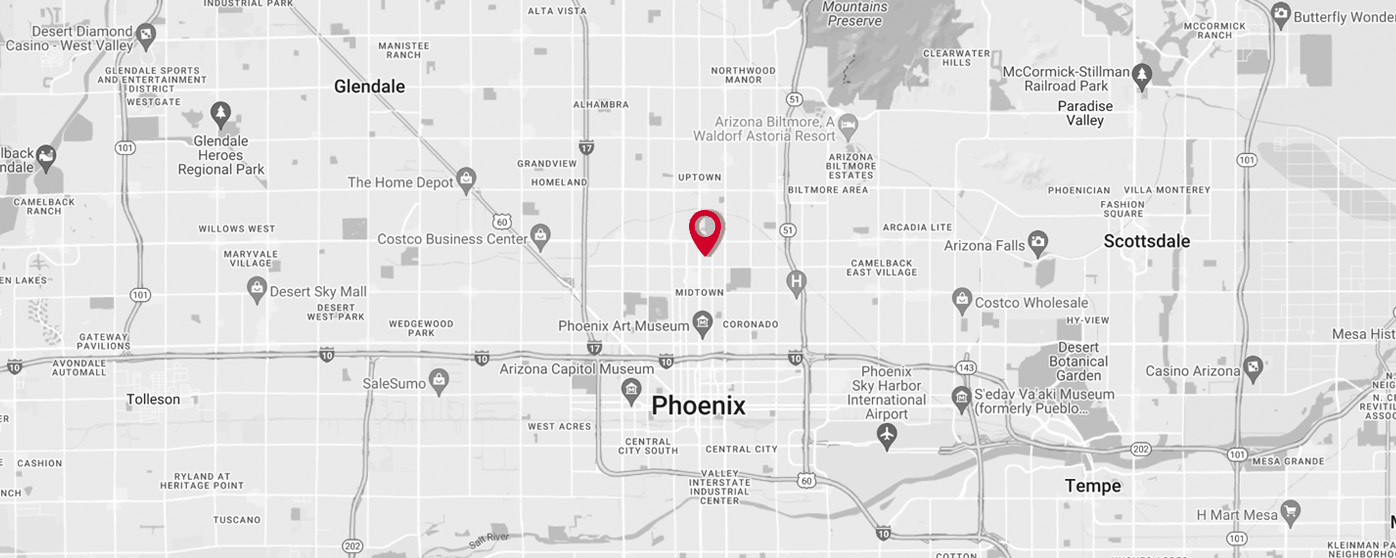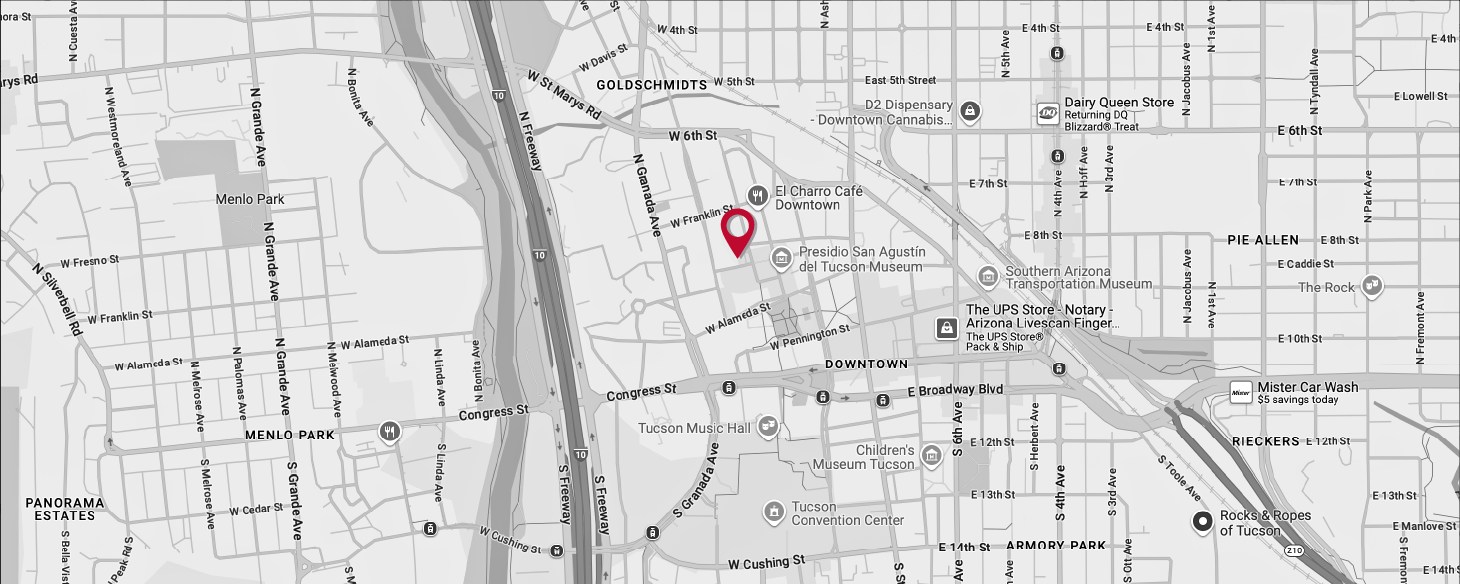The general rule for workers who receive a settlement and benefits under Arizona workers’ compensation is that it is your exclusive remedy: you cannot sue your employer if you are benefiting from a workers’ compensation claim.
However, if someone outside of your work is responsible for at least part of your injury, illness, or medical condition, you can sue that person in a personal injury lawsuit. When this happens, the workers’ comp insurance company has the right to place a lien on sums you receive through a court judgment award or out-of-court settlement amount.
If you’re an injured worker with a personal injury claim against someone who caused your work-related injury, and you don’t sue them within one year, the workers’ compensation insurer can file the lawsuit on your behalf in Arizona. This is called a “subrogation claim.”
Arizona Laws and Regulations That Apply to Third-Party Recovery
Under Arizona statutory law (ARS 23-1023) and Rules of the Arizona Industrial Commission (Arizona Administrative Code R20-5-119 and R20-5-120), procedures exist to allow workers’ comp insurers to either put a lien on what an injured employee can recover from a third-party claim or to “step into your shoes” to pursue a third-party claim you have if you do not take action within one year after your legal cause of action arises.
How workers’ compensation claim liens and subrogation claims work can be complicated. If you have a possible claim against a third party that arises from a work-related injury, an Arizona workers’ compensation attorney from the Matt Fendon Law Group can help you to receive the most possible compensation and settlement.
What is the Reason for Workers’ Comp Statutory Liens and Subrogation Rights?
If you file a workers’ compensation claim, receive benefits, and then sue a third party for the same injury, you could end up with a double recovery.
Under Arizona law, it is considered unfair to the workers’ comp insurer to pay for your monthly compensation and medical benefits when someone else is an at-fault party for your injuries or could be held liable for them.
This is the main reason workers’ compensation statutory liens and subrogation claims exist: to allow the workers’ comp insurer to recover from the at-fault third party what it has double-paid for in benefits to you.

How Do Statutory Liens and Subrogation Claims Work?
The Arizona statute that governs third-party lawsuits for workers’ comp claims, ARS 23-1023, has five parts, subsections (A) through (E).
(A) Legal Authorization to Sue a Third Party for a Workers’ Compensation Injury
ARS 23-1023(A) allows a worker to file a lawsuit against someone who, through negligence or wrongdoing, injures them, worsens a pre-existing workers’ compensation injury, or causes a fatality for which workers’ compensation is owed.
- If the worker affected by this wrongful conduct dies, the deceased’s dependents have the cause of action to sue.
- The third-party must be someone not employed by the same employer as the injured or deceased worker.
This statute also applies to arbitral proceedings, not just lawsuits. However, for our purposes, we will refer to these actions collectively as lawsuits.
(B) Time Restriction Within Which You Must File a Third-Party Suit
If you have a third-party cause of action for your work-related injury and you do not exercise that right within one year after it accrues, then ARS 23-1023(B) automatically gives your employer the right to take over your claim and file a lawsuit of its own against the third party.
- The insurer can also take over your claim if you file a personal injury lawsuit but do not fully prosecute your claim and the court dismisses it.
- In cases where your lawsuit against the third party has a statute of limitations (the time frame you have to exercise your legal right or lose it) of only one year, the insurance company can take over your claim before the one-year statute of limitations expires.
- If workers’ compensation insurance companies take over your right to sue a third party, they can return the right back to you (or to your dependents if you die because of your injuries). This re-assignment will have the effect of legally presuming that you filed your lawsuit within the one year required of you. However, re-assignments are not mandatory and should never be relied on as a given.
(C) Notice Requirements to the Workers Compensation Insurer
If you choose to file a third-party lawsuit, then under ARS 23-1023(C), you must give the workers’ comp insurer notice in writing of your intent. You must also give the insurance company timely and periodic written notice of all pleadings and court rulings concerning your lawsuit’s status.
Also, if the insurance company chooses, it has the legal right to intervene in your lawsuit against the third party if the insurer believes it is necessary to protect its own interests.
(D) What the Workers Compensation Insurance Company Can Put a Lien On
Under ARS 23-1023(D), the workers’ compensation insurance carrier is obligated to pay out workers’ compensation benefits for your medical, surgical, and hospital expenses to you while your lawsuit is pending. This subsection of the statute gives the insurer a statutory lien on what it pays out to you in these benefits.
The actual collectible amount of this statutory lien is:
- The total amount of the recovery against the third party
- Less reasonable and necessary expenses, including attorney fees that were spent in securing your recovery
- The balance after subtracting reasonable and necessary expenses
Additional notes:
- In a lawsuit arising out of an aggravation of a previously accepted workers’ comp claim, the statutory lien only applies to sums spent for compensation and treatment of the aggravation.
- The workers’ comp insurer can apply to a future credit (like a deductible) to future medical and indemnity payments unless you negotiate a different arrangement.
- Unless you negotiate otherwise, the future credit against the third party will be the exact amount you receive in your third-party settlement against future workers’ compensation benefits.
The workers’ comp insurer is only responsible for paying any deficiency between the actual collectible amount and the workers’ compensation payments. They must also pay for any medical, surgical, and hospital benefits provided to you through the insurer.
- Note: if you or your dependents seek to settle your lawsuit against the third party for less than the amount of compensation, medical, surgical, and hospital benefits you have received from the workers’ comp insurance company, you must first obtain from the insurance company its approval of that settlement.
The Effect of Employer Liability on a Workers’ Compensation Statutory Lien
In Arizona, the insurance carrier’s lien on a third-party settlement can be reduced based on the percentage of fault assigned to the employer. This reduction is possible if the employee’s damages and the employer’s fault are determined fairly, including through a settlement agreement.
How the Industrial Commission of Arizona Can Affect Your Third-Party Recovery
Finally, under ARS 23-1023(E), the Industrial Commission of Arizona (the ICA) has the same rights as the workers’ comp insurer.
- For example, this provision can apply if the employer does not have a workers’ compensation insurance policy (AAC R20-5-119).
- Under AAC R20-5-119, if you or your dependents file a lawsuit against a third party, you or your lawyer must provide copies of pleadings and all settlement offers to the workers’ compensation carrier, self-insured employer, or special fund division to whom notice is required.
- Also, under AAC R20-5-120, the ICA must consent to any settlement agreement, compromise, or waiver of workers’ compensation claim rights. This consent is required even if workers’ compensation has denied the claim and paid no benefits to you.
- Accepting any payments or signing a settlement agreement, compromise, release, or waiver of rights does not release the employer or the workers’ compensation insurance carrier from any obligation imposed by Arizona’s Workers’ Compensation Law.
Call The Matt Fendon Law Group About Your Workers’ Compensation Third Party Case
Arizona workers’ compensation benefits, third-party claims, and how your employer’s insurer can pursue a subrogation claim are complex challenges that require a team approach.
In actuality, workers’ comp statutory liens and insurance company subrogation claims are more complicated because several Arizona Court of Appeals and Arizona Supreme Court decisions have applied additional considerations that a simple reading of the applicable statutes and regulations by themselves does not make apparent.
Having an experienced Arizona workers’ comp claim attorney to represent you in a third-party claim connected to a workplace injury is essential to avoiding the potentially costly trap of “Not knowing what you don’t know.”
The validity and effectiveness of a third-party settlement claim can also depend on ensuring the ICA’s requirements are met.
If you are an injured worker and believe that a third party has contributed to your work injury, we urge you to contact us so we can protect your rights under Arizona’s workers’ compensation laws.
Call us today at (800) 229-3880 to schedule a confidential, free consultation with an experienced workers’ compensation lawyer in Phoenix. Or, if you prefer, you can contact us online to ask a question or to schedule a free consultation.We have offices in Phoenix, Prescott, Flagstaff, Scottsdale, and Tucson to serve injured workers like you.





